Publications
Articles, publications, books, tools and multimedia features from the U.S. Institute of Peace provide the latest news, analysis, research findings, practitioner guides and reports, all related to the conflict zones and issues that are at the center of the Institute’s work to prevent and reduce violent conflict.
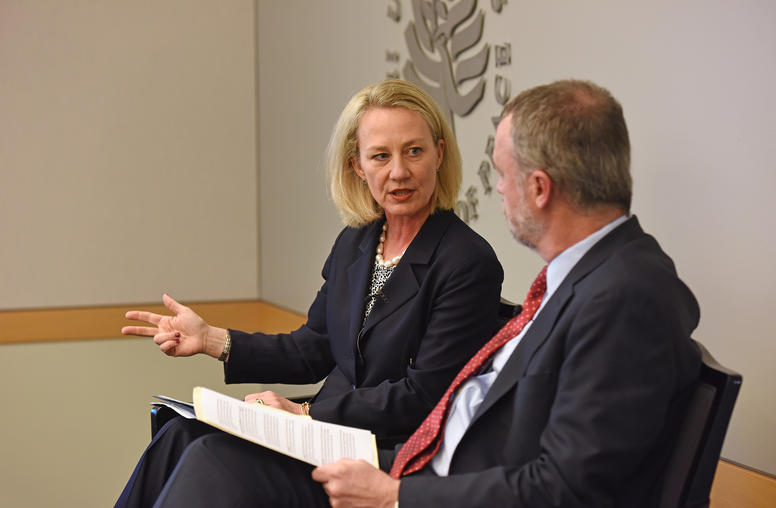
U.S. Presses Taliban to Accept Afghan Peace Talks
The senior U.S. diplomat for South and Central Asia, Ambassador Alice Wells, urged Afghanistan’s Taliban to take up last week’s offer by President Ashraf Ghani to hold direct peace negotiations. “It is a positive sign” that the Taliban have not rejected Ghani’s proposal, Wells said—and a planned regional conference in Tashkent this month should reinforce international pressure for the insurgent movement’s acceptance of peace talks.
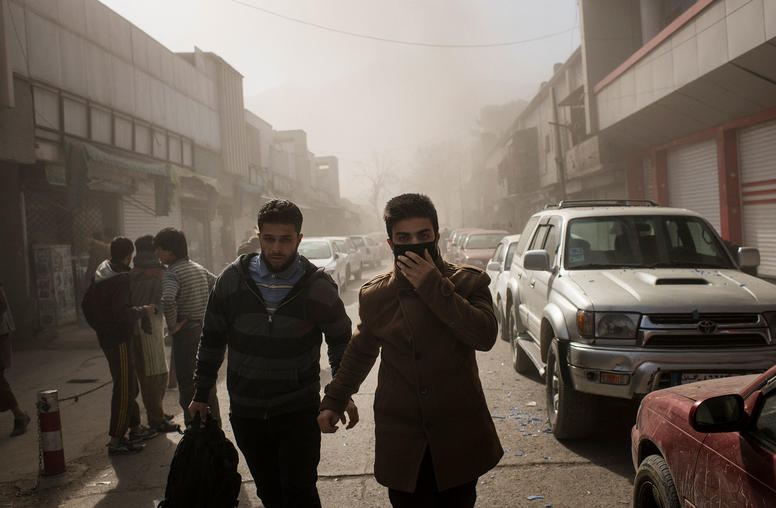
What’s Behind the Spike in Deadly Terror Attacks in Afghanistan?
In Afghanistan, a string of attacks has killed more than 130 people and wounded more than 300 in just over a week. Targets included a busy downtown block near a government hospital, an international hotel, a military training academy, and the global charity Save the Children.

How to Build Out President Trump’s Afghan Plan?
President Trump’s blueprint for the U.S. role in Afghanistan broadly resembles that of prior administrations, correcting some previous errors while appearing likely to repeat others, USIP experts told journalists today.
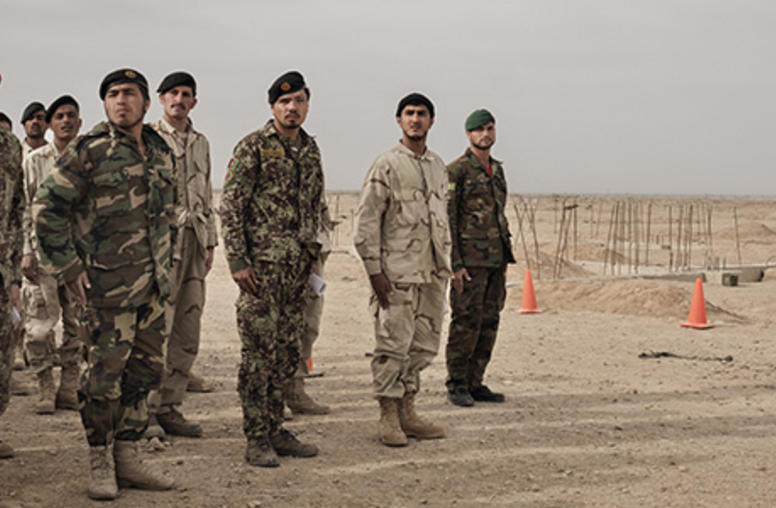
Q&A: Obama’s Troop Decision and Afghanistan’s Stability
Today, President Obama announced that he would extend the presence of roughly 8,400 U.S. troops in Afghanistan through the end of his term in January 2017, revising previous plans to cut force levels to around 5,500 soldiers at the end of the year. Afghanistan will be among the top issues for the NATO Summit of leaders in Warsaw, taking place later this week on July 8-9. USIP Vice President for Asia Programs Andrew Wilder, who recently returned from Afghanistan, discusses the issue of troop n...
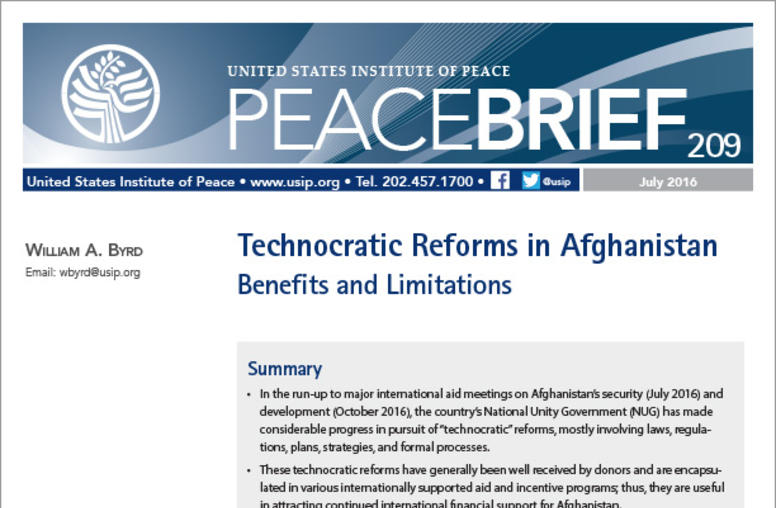
Technocratic Reforms in Afghanistan: Benefits and Limitations
Afghanistan’s “technocratic” reforms have resulted in impressive progress in areas such as public financial management. However, these reforms alone will not solve the country’s pressing security, political, and economic problems. This brief outlines the benefits and limitations of technocratic reforms and emphasizes that government and international attention should not be diverted from concrete, short-term measures to improve government functioning, strengthen security, and stimulate a mode...
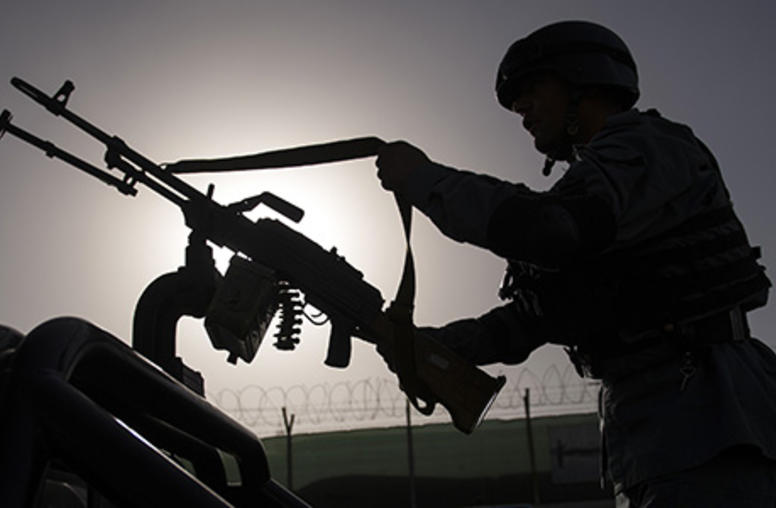
Q&A: Drone Strike's Impact on Afghanistan, Pakistan
The death of Afghan Taliban leader Mullah Mohammed Akhtar Mansour, who reportedly was killed in a U.S. drone strike in Pakistan on May 21, raises a host of questions about the Taliban’s future, U.S. strategy in Afghanistan and American relations with Pakistan. The strike, which Pakistani officials have protested, was the first publicly-disclosed military action by the U.S. inside Pakistan’s southwestern Baluchistan province, and the first to directly target senior Taliban leaders sheltering o...
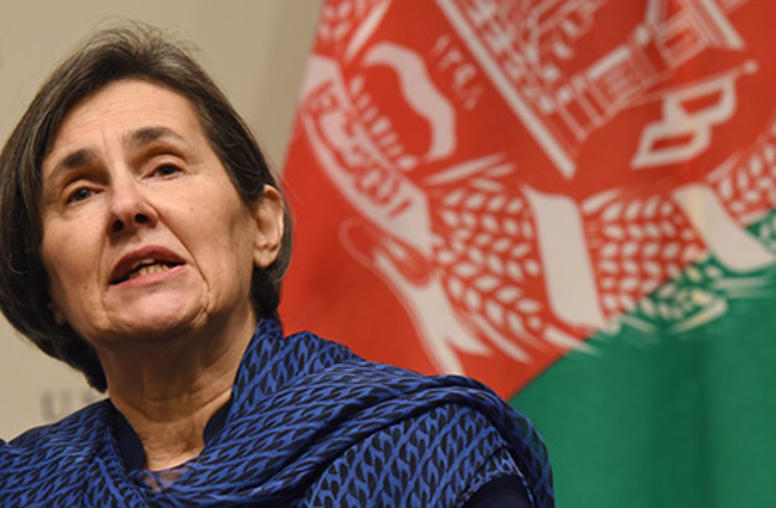
Afghan First Lady: Justice Reform is Hopeful 'Snapshot'
Afghanistan’s first lady, Rula Ghani, countering what she called the “prophets of doom and gloom,” said extensive reforms to her country’s legal system over the past 18 months are beginning to deliver results and illustrate potential progress. Speaking at the U.S. Institute of Peace, Ghani said the unity government headed since January 2015 by her husband, President Ashraf Ghani, and Chief Executive Abdullah Abdullah understand the need to provide fair and effective justice to Afghanistan’s p...
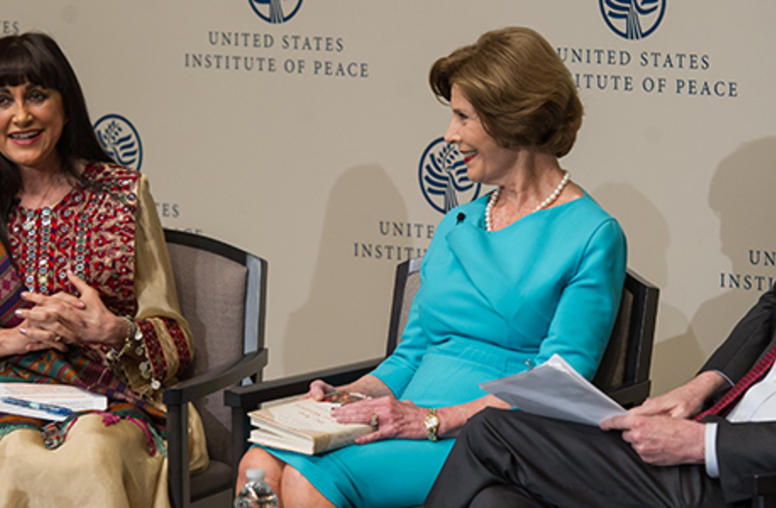
Laura Bush Urges Sustained Support for Afghan Women
Former first lady Laura Bush said the international community must continue to support the reconstruction of Afghanistan and progress for the country’s women through aid, investment and an ongoing presence of American troops. Speaking at the U.S. Institute of Peace on March 15, Bush said she remains hopeful for the country’s future, in part because of the spirit of Afghan women and the strides they have made in education, business and government.
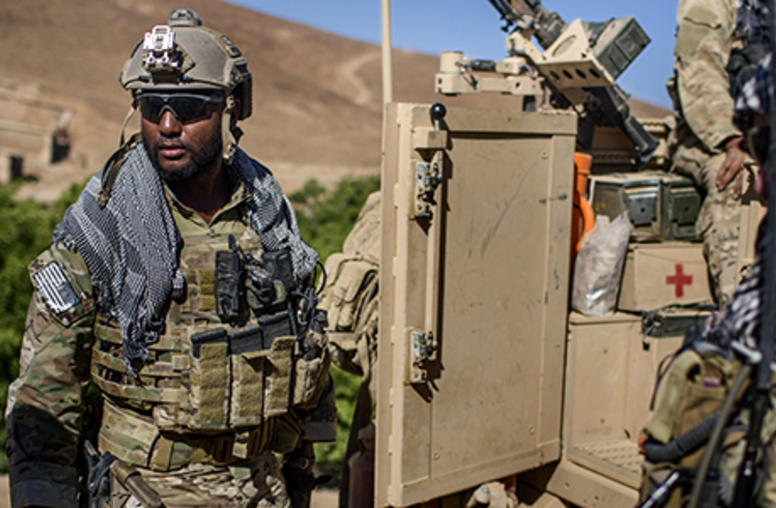
Poor Planning, Coordination Cited in Afghan Intervention
Failings by the United States and its NATO partners in the early stages of the 15-year-long war in Afghanistan have prolonged that country’s need for international troops and economic help, U.S. and German officials said in a recent forum at the U.S. Institute of Peace that examined the lessons learned during the past decade.
Urgent Imperative: Get Afghanistan’s Government Working
Ten weeks after the Taliban briefly captured Kunduz, Afghanistan’s fifth-largest city, neither the fractured government nor the country’s political class is showing signs of heeding that wake-up call—or the other flashing warnings that the 14-month-old government is close to failure. While the United States quickly announced the reversal of its planned withdrawal of forces from the country, the factions in Kabul must figure out how to cooperate in governing, and Washington must do all it can to advance that, analysts say.